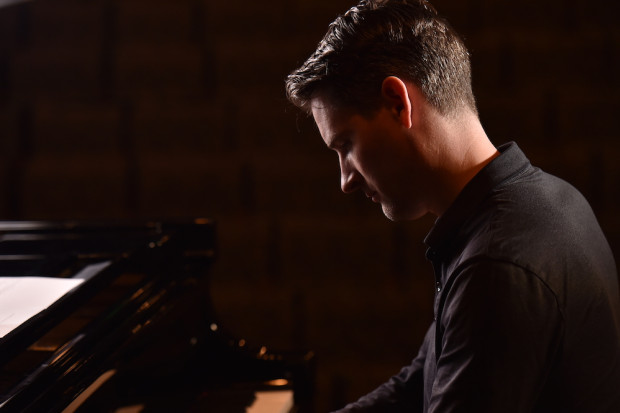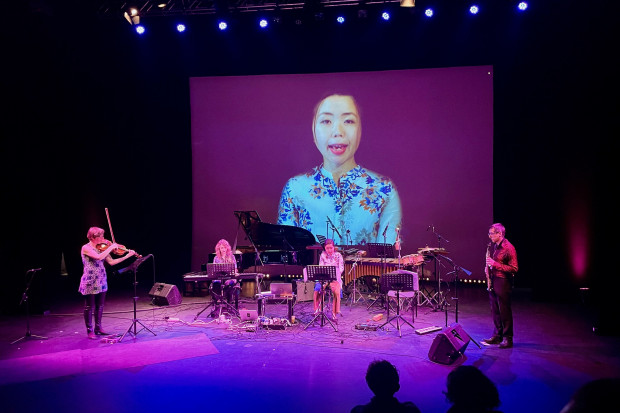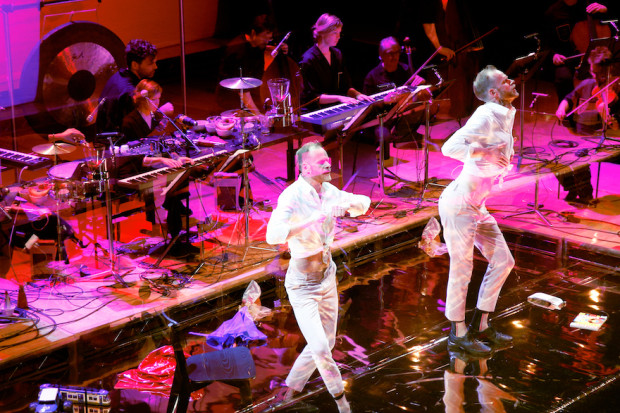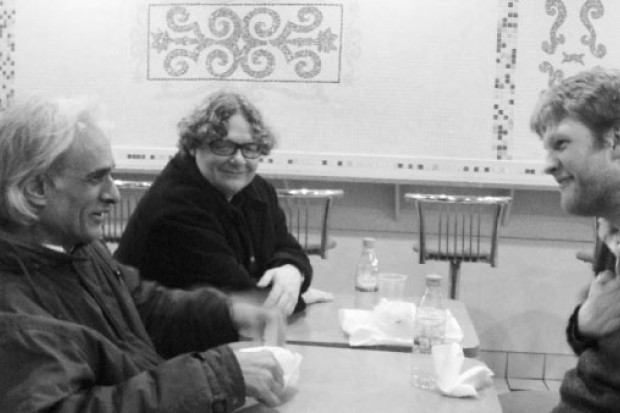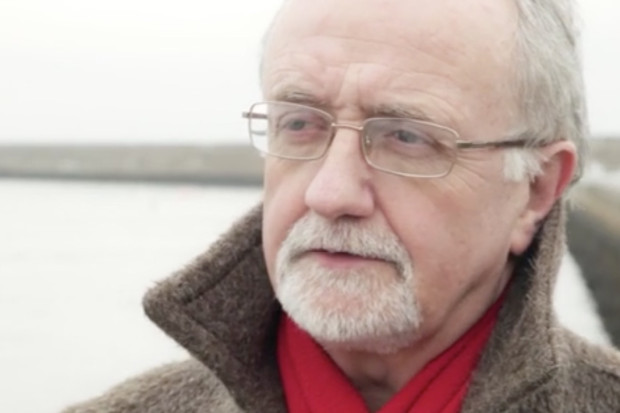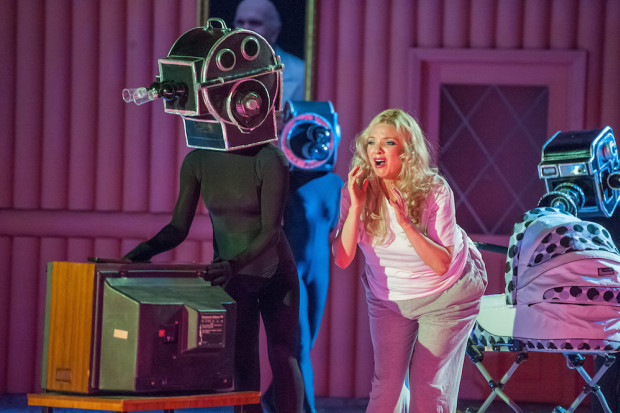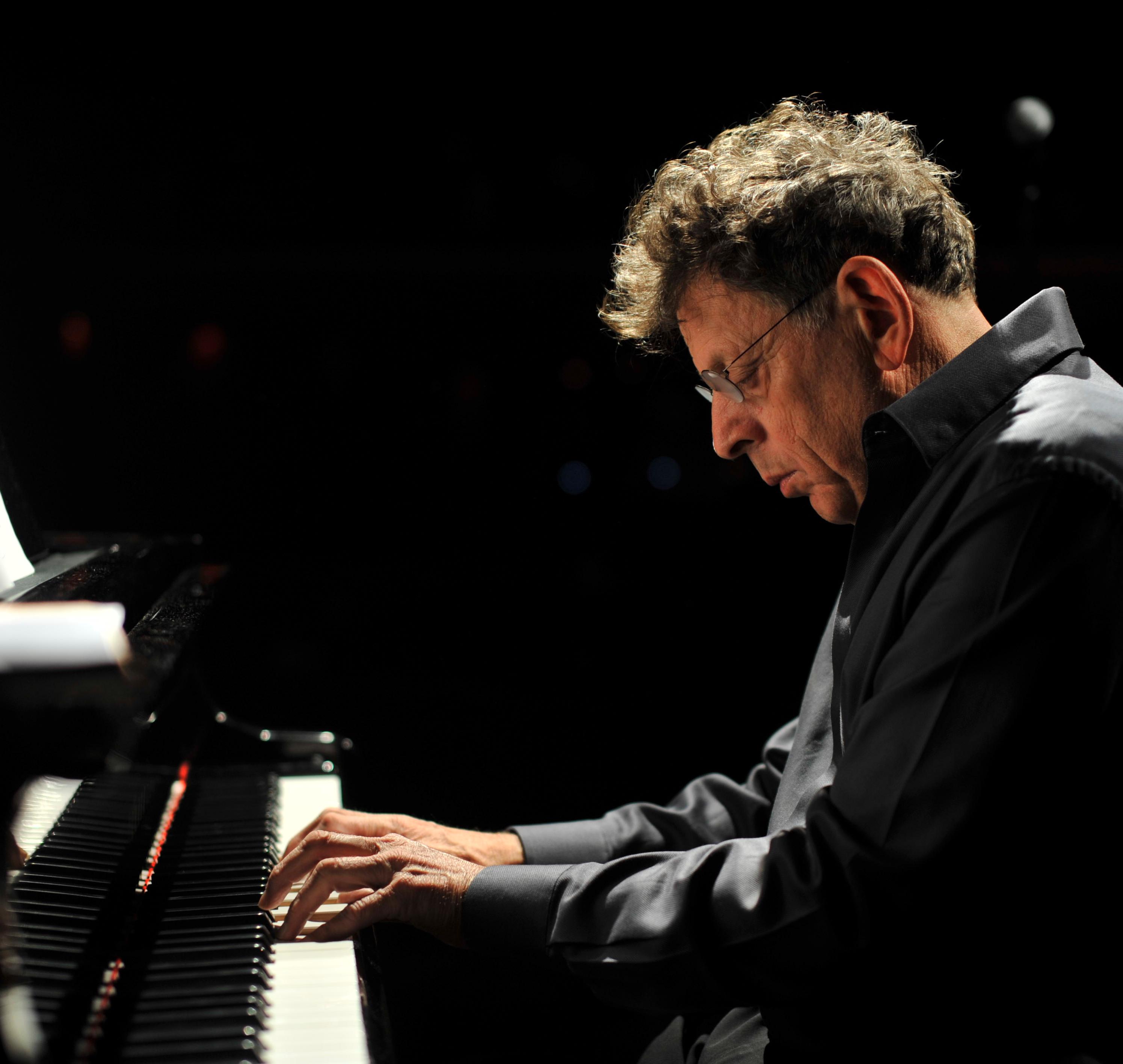
Philip Glass
If You’re Not a Minimalist, What are You?
It’s a little bit hard for me to believe that Philip Glass, the iconic American composer, is of memoir-writing age. He’s 78 years old now, but he exists in my imagination as the embodiment of the radical ensemble works he wrote in his thirties – resolute, vigorous and somehow ageless. His recently published memoir, Words Without Music, surveys the impressive breadth of his long life in music. The book’s introduction, three main sections and montage-like closing section are organised according to significant themes or experiences – they trace a broad chronology, but, refreshingly, occasionally skip ahead in time, or digress to follow a particular thread. We get a picture of Glass’ childhood in Baltimore, studies in Chicago, then Juilliard, his years in Paris, quasi-pilgrimage to India and Tibet, his work in the ‘downtown’ New York scene of the late 1960s and 70s, and his work in opera and film since then.
At just under 400 pages, Words Without Music is neither an exhaustive chronicle nor is it self-indulgent. The prose is plain, simple, even conversational – never convoluted, but sometimes heavy on benign factual detail. As I read, sometimes I found myself thinking about writer David Foster Wallace’s critique of fiction that deals in specialised subject matter but simultaneously fails to nourish the specialist and alienates the non-specialist. As a ‘specialist’ in this instance (a composer and a fan of much of Glass’ music), I sometimes felt as if the writing neither offered me the kind of technical detail I can’t help wanting, nor made me forget I wanted it through strength of style.
None of the above is to imply that Words Without Music is without compelling insights – or indeed without moments of poetry. The impressionistic reminiscences that make up the book’s closing section are intimate and touching. Elsewhere, Glass describes an epiphany he had whilst rehearsing with the African musician Foday Musa Suso for the first time. The writing is luminous and urgent:
In a flash I finally understood that the whole system of music I had learned […] had been just that – a system, consensual in its very language and no more eternal than the human beings that contrived it. It didn’t make it less beautiful. Perhaps it was now even more beautiful. And as impermanent as an afternoon shower, ever so lightly moistening the air we breathe.
His responses to the question ‘What is music?’ in the final pages of the book manage to apprehend something of the elusive, amorphous, abstract experience of the music-lover:
For a while, the answer I found was that music is a place. By that, I mean a place as real as Chicago, or any other place you want to think of, that has all the attributes of reality – depth, smell, memory. I’m using the word ‘place’ poetically in a certain sense, and yet what I want to convey is the solidity of the idea. A place is a way of outlining a particular view of reality. You can mark a particular view and call it a place, and you can go back to it. When I say music is a place as real as Chicago, what I mean to say is that in our minds it exists in very much the same way. I can take the plane to Chicago, and I can also imagine Chicago, but either way, I know Chicago is a place for me. In the same way, that same place can exist in a painting, in a dance, in a poem, or in a piece of music.
Furthermore, taken as a whole, the book reveals the full degree to which Glass (consciously and unconsciously) synthesised diverse musical and extra-musical elements in forming his artistic practice. The breadth and organicism of this process is impressive. A picture of a nexus of influences emerges: the early exposure to classical music via Glass’ father’s record store, and listening sessions in Chicago; the American jazz of the late 1950s; solid, traditional European classical composition technique in the shape of the gruelling, hard-core teaching doctrines of Nadia Boulanger; the cyclic and additive behaviours of Indian classical music via experiences with master musicians Ravi Shankar and Alla Rakha; the long period spent as assistant to sculptor Richard Serra; the experimental theatre of the early 1960s via his first wife JoAnne Akalaitis, in particular the radical reductivism of Samuel Beckett’s work and, of course, Robert Wilson with whom he would eventually collaborate; Tibetan Buddhism, in particular the influence of his teacher Tomo Geshe Rimpoche; the all-night music-dance dramas of Indian Kathakali theatre… I could continue this list.
At one point, Glass remarks that the musical language shared by the so-called musical minimalists, beginning around the late 1960s, paved the way for the culture of pluralism in the world of music composition today. But such pronouncements are rare. Moreover, I got the sense that the very act of recounting the diversity of his formative experiences was as revelatory for Glass himself as it might be for the reader. For instance, he writes ecstatically about hearing a real connection between the music of jazz pianist Lennie Tristano and his own work, fifty years after his initial encounter with Tristano during his time at Juilliard:
No, the notes weren’t the same. Most listeners would probably not have heard what I did. But the energy, the feel, and, I would say, the intention of the music was completely and accurately captured in the ‘Train’ [from Glass’ Einstein on the Beach]. It doesn’t sound like [Tristano], but it shares the idea of propulsion, the self-confidence, and the drive. There’s an athleticism to it, a nonchalance, an ‘I don’t care if you listen to it or not – here it is.’
Elsewhere, he realises the true weight of early encounters with the music of nineteenth-century Austrian symphonist Anton Bruckner whilst working with the Bruckner Orchestra:
To my surprise, the Bruckner Orchestra played these compositions better than American orchestras. Somehow, Bruckner’s sound had gotten lodged in my psyche. I had taken those [Bruckner symphonies] and digested them whole, and they had remained in my memory. When I was writing the opera Satyagraha, I found myself doing a similar kind of orchestration: all the strings played together in blocks, all the winds played together in blocks, and I took these blocks and managed to move them in new ways. I wasn’t consciously trying to emulate Bruckner, but it was only when I heard the live Bruckner Orchestra, an Austrian orchestra, playing my music – my Sixth, Seventh, and Eighth Symphonies as well as other pieces – that I said, ‘Oh, this music sounds right.’ Then I realized that the reason it did sound right was that there were remnants of the Bruckner symphonies I’d heard many years before still in my mind.
I was left with an impression that Glass deeply understands the importance of both subconscious and concious assimilation in the creation of new art – that is, the digestion and integration of pre-existent elements. That Words Without Music traces Glass’ various assimilations is, I think, one of its main strengths. ‘I sometimes hear about work described in terms of “originality,” or “breakthrough,”’ he writes,
but my personal experience is quite different. For me music has always been about lineage. The past is reinvented and becomes the future. But the lineage is everything.
Perhaps the most valuable insight offered by Words Without Music has to do with the role of the theatre – or rather, the theatrical situation – in Glass’ work. At one point in the book, whilst discussing the seminal importance of his incidental music composed for a production of Beckett’s Play in Paris in 1965, he writes:
‘If you’re not a minimalist, what are you?’ many have asked over the course of my career.
‘I’m a theater composer,’ I reply.
He continues:
The theater suddenly puts the composer in an unexpected relationship to his work. As long as you’re just writing symphonies, or quartets, you can rely on the history of music and what you know about the language of music to continue in much the same way. Once you get into the world of theater and you’re referencing all its elements – movement, image, text, and music – unexpected things can take place. The composer then finds himself unprepared – in a situation where he doesn’t know what to do. If you don’t know what to do, there’s actually a chance of doing something new.
This statement provides a new and rewarding lens with which to view Glass’ work. The music he wrote for Beckett’s Play in 1965 – a tape piece comprising of continuous rhythmically propulsive saxophone music oscillating within a restricted pitch gamut – was a response to, as he says, a situation in which he didn’t know what to do. The paradox is that he was in fact artistically ‘free’. He could work in a new way; he could approach the compositional act from the point of view of the necessities of the specific theatrical situation rather than from the point of view of his default creative mindset. And the musical language he ‘discovered’ – a language of unbroken, yet constantly shifting, activity, could then become the basis for a body of creative work – a new, unexpected, world to explore.
Looking at it this way, the radical works composed for his own Philip Glass Ensemble in the ‘downtown’ New York scene of the 1970s – Music in Similar Motion, Music with Changing Parts, Music in Twelve Parts, Another Look at Harmony, etc. – may have functioned as a kind of laboratory in which the qualities of this new world were tested. And then another breakthrough came with another theatrical situation: the 1976 opera, Einstein on the Beach, created in partnership with the theatre maker Robert Wilson. Glass and Wilson had no particular plans for what they wanted Einstein to be – it came together as an abstract work, the product of a series of seemingly arbitrary, but, in retrospect, deeply congruent, decisions. Here was another case in which the situation of theatre – that is, a situation in which text, movement, visual semiotics and music are all in play – allowed for Glass to be in ‘an unexpected relationship’ to the work; allowed him to work without preconceptions. And the result was a twentieth-century masterpiece.
Glass’ continued involvement in opera and film composing (which, very interestingly, he equates to opera composing, and approaches in a non-standard manner in terms of the conventions of Hollywood) since Einstein makes me wonder if, perhaps, he is always looking to the theatrical situation to act as a catalyst – to provide a chance of ‘doing something new’? (Certainly, his collaboration with Godfrey Reggio on the Qatsi series of films yielded innovatory results.) This in turn raises the question as to what extent the continued cultivation of a musical language (in Glass’ case, a now well-defined, even iconic language) might actually be a barrier to arriving in the magic situation of being artistically ‘unprepared’? It’s a question I actually direct more at myself than I do at Glass – although I am grateful that his book made me think about it.
Words Without Music is published by Faber & Faber.
Published on 21 April 2015
Garrett Sholdice is a composer and a director of the record label and music production company Ergodos.










